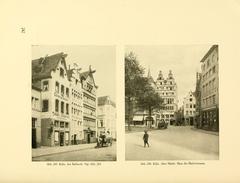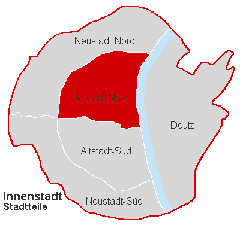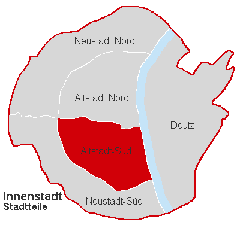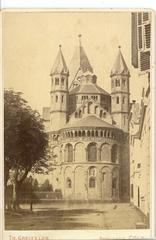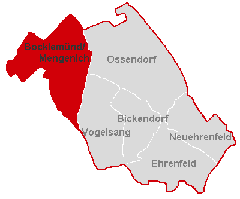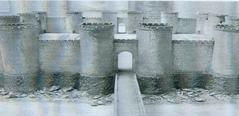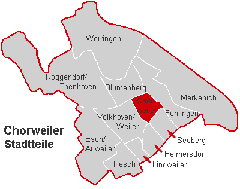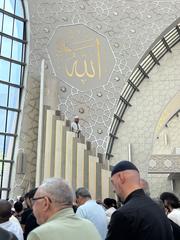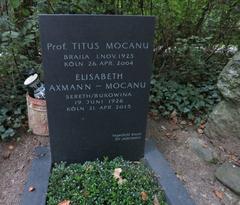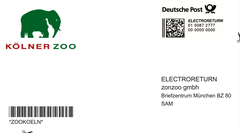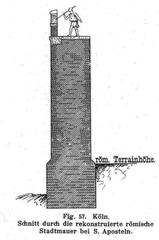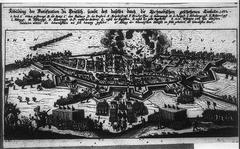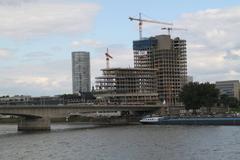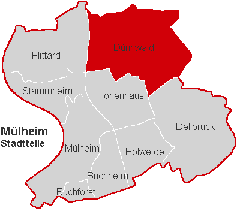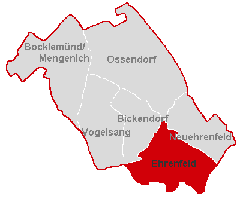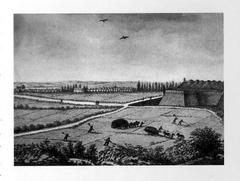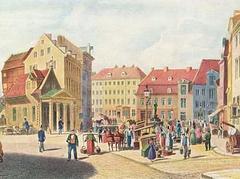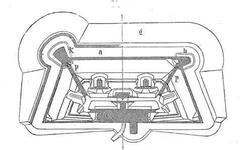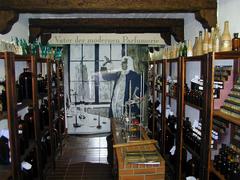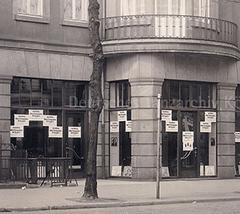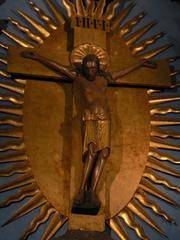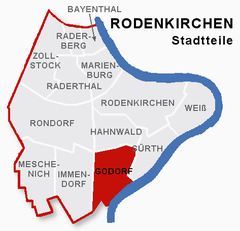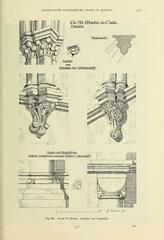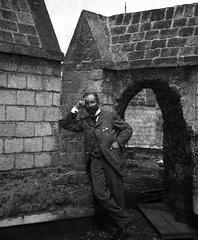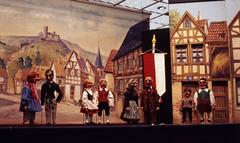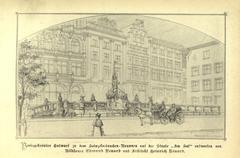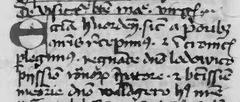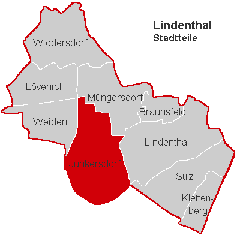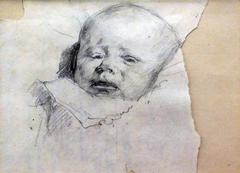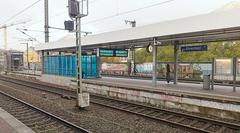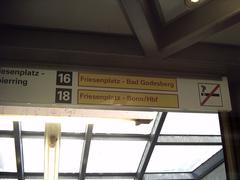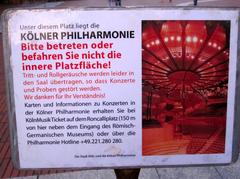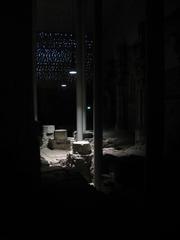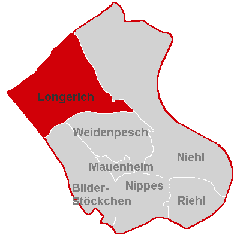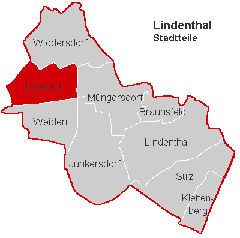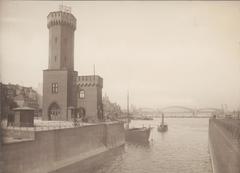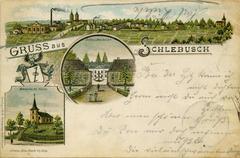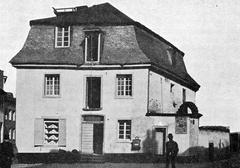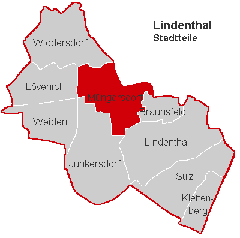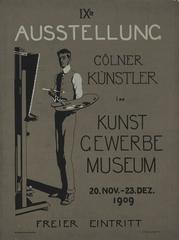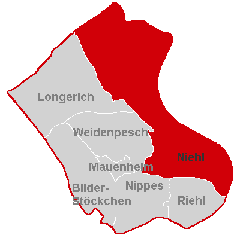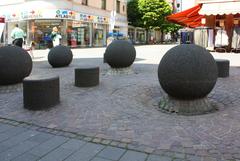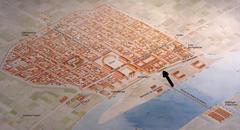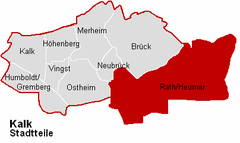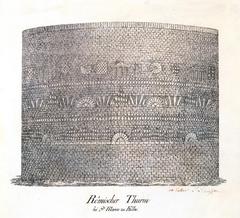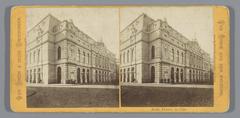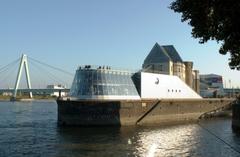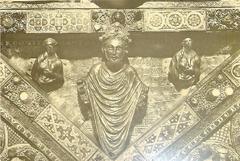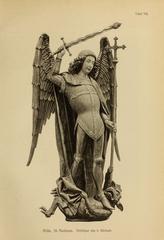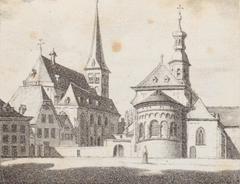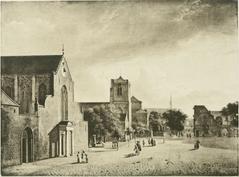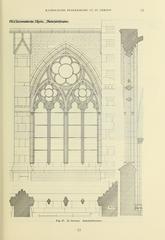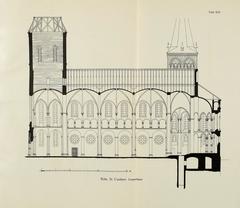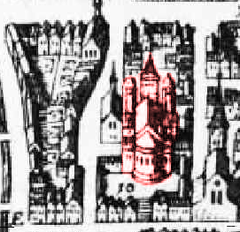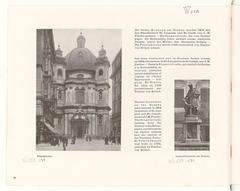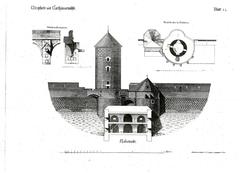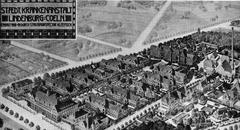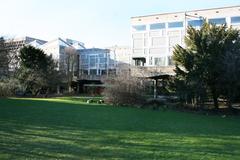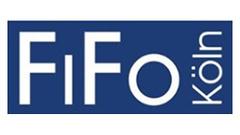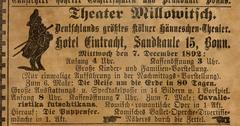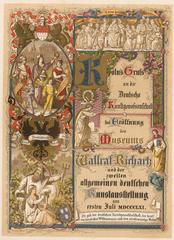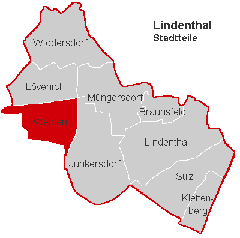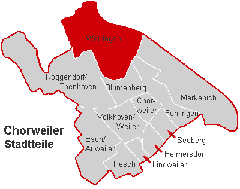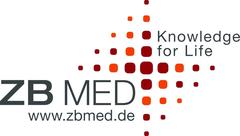
Historisches Archiv des Erzbistums Köln: Visiting Hours, Tickets, and Guide to Cologne’s Historical Treasure
Date: 04/07/2025
Introduction
The Historisches Archiv des Erzbistums Köln (Historical Archive of the Archdiocese of Cologne, AEK) is a cornerstone of Cologne’s rich heritage. Established in 1921, it preserves over a millennium of ecclesiastical, cultural, and social history, making it one of Germany’s most significant church archives. Centrally located and equipped with state-of-the-art preservation technology, the archive welcomes researchers, genealogists, and history enthusiasts to explore original documents ranging from medieval charters to 20th-century records. This guide offers comprehensive visitor information, highlights of the collections, and practical tips for making the most of your visit to this exceptional Cologne historical site.
Table of Contents
- Introduction
- Foundation and Historical Development
- Architectural Features and Preservation
- Visitor Information
- Highlights of the Collections
- Modernization and Digital Access
- Research and Educational Significance
- Facilities and Visitor Services
- Nearby Attractions and Travel Tips
- Frequently Asked Questions (FAQ)
- Conclusion and Visitor Tips
- References and Official Links
Foundation and Historical Development
Founded in 1921, the Historisches Archiv des Erzbistums Köln was established to systematically safeguard the extensive documentary legacy of the Archdiocese of Cologne. Its holdings chronicle the region’s ecclesiastical administration, religious life, and societal evolution from the early Middle Ages to the present. With roots tracing back to the 4th century, the Archdiocese itself has long been a spiritual, political, and cultural leader in the Rhineland and beyond. The archive’s collections thus reflect not only local but pan-regional and even European significance (EHRI Project).
Architectural Features and Preservation
Purpose-built to protect its invaluable collections, the archive’s building features reinforced concrete basins and steel doors, with most storage areas located two floors underground. These measures ensure resilience against flooding and other hazards. A major expansion in 2007 increased capacity to over ten kilometers of shelf space, accommodating the growing volume of records and enhancing preservation standards.
Visitor Information
Location
- Address: Maternusstraße 10-12, 50678 Cologne, Germany (main archive)
- Alternate address for reading room: Gereonstr. 2-4, 50670 Köln, Germany
(Check the official website for updates on locations and facilities.)
Visiting Hours (as of July 2025)
- Main Reading Room:
- Monday to Friday: 9:00 AM – 4:30 PM
- Tuesday, Thursday, Friday: 9:00 AM – 4:00 PM
- Wednesday: 9:00 AM – 1:00 PM
- Closed on weekends and public holidays
- Note: Always verify current hours and potential closures on the official website before your visit.
Admission and Registration
- Admission: Free of charge.
- Registration: Required upon arrival with a valid photo ID. For research access, a brief overview of your research focus may be requested.
Accessibility
- Fully wheelchair accessible, with ramps and elevators throughout.
- Visitors with special needs should contact the archive ahead of time for support.
Guided Tours
- Guided tours and special events are occasionally offered.
- Advance inquiry and booking are recommended as tours are not regularly scheduled.
Contact and Directions
- Phone: +49 221 1630 0
- Email: [email protected]
- Official Website: www.aek-koeln.de
- By Public Transport: Easily reachable from Cologne Central Station (Köln Hauptbahnhof) via tram lines 1, 7, 9, or nearby bus stops.
- Parking: Limited; public transport is recommended for convenience.
Highlights of the Collections
The AEK’s collections are among the most extensive of any church archive in Germany:
- Medieval Charters and Papal Bulls: Documents dating as far back as 942 CE, vital for understanding church, legal, and land tenure history.
- Parish Registers: Baptism, marriage, and burial records from the 16th century onward, crucial for genealogical research.
- Administrative Protocols: Detailed records of the archdiocese’s governance, including Generalvikariatsprotokolle from 1662–1825.
- Personal Estates: Manuscripts and personal papers of influential figures, such as Friedrich Schlegel and architect Fritz Schaller.
- Photographic and Audiovisual Archives: Visual documentation of Catholic life and Cologne’s ecclesiastical architecture since the 19th century.
- Maps, Plans, and Artifacts: Historical maps and architectural drawings of churches and diocese properties.
Modernization and Digital Access
The AEK is a leader in digital accessibility:
- Digitales Archiv des Erzbistums Köln: Thousands of digitized church books, protocols, photographs, and manuscripts are freely available online (Digitales Archiv des Erzbistums Köln).
- Deutsche Digitale Bibliothek: Selected materials are also accessible via this national platform (Deutsche Digitale Bibliothek).
- Online Catalogs: Searchable catalogs for both archival and library holdings support research planning from anywhere.
Research and Educational Significance
The archive is a hub for academic research and public education:
- Research Support: Staff provide expert assistance in navigating collections and catalogues.
- Educational Collaboration: Partnerships with universities and cultural institutions foster exhibitions, workshops, and collaborative projects (Landesarchiv NRW).
- Holocaust and Postwar Documentation: The archive preserves records on church resistance and persecution during the Nazi era (EHRI Project).
Facilities and Visitor Services
- Reading Room: Quiet study space with 20 workstations, access to digital resources, and free Wi-Fi.
- Reference Library: A specialized Präsenzbibliothek for on-site use, focusing on church and local history.
- Lockers: Personal items must be stored in lockers; only research materials are allowed at workstations.
- Accessibility: Ramps, elevators, and staff assistance for visitors with mobility needs.
- Languages: Most materials are in German or Latin; staff may assist in English.
Nearby Attractions and Travel Tips
While at the AEK, take advantage of Cologne’s vibrant cultural scene:
- Cologne Cathedral (Kölner Dom): A UNESCO World Heritage site.
- Museum Ludwig: Renowned for modern art collections.
- Roman-Germanic Museum: Explore Cologne’s ancient heritage.
- Old Town (Altstadt): Historic streets, cafes, and shops nearby.
Tips:
- Plan your visit during midweek mornings for fewer crowds.
- Wear comfortable shoes for walking.
- Combine your archival research with sightseeing for a full cultural experience.
Frequently Asked Questions (FAQ)
Q: What are the archive’s opening hours?
A: Generally Monday–Friday, 9:00 AM–4:30 PM; always check the official website for updates.
Q: Is admission free?
A: Yes, access is free of charge.
Q: Do I need an appointment?
A: Appointments are required for research; general visits may not require advance booking unless for tours.
Q: Can I take photographs?
A: Permission is required; photography is often restricted to protect materials.
Q: Is the archive accessible for visitors with disabilities?
A: Yes, the building is fully accessible. Contact the archive for specific needs.
Q: Are guided tours available?
A: Offered occasionally by arrangement—check ahead for current options.
Conclusion and Visitor Tips
The Historisches Archiv des Erzbistums Köln is a premier destination for anyone interested in Cologne’s history, ecclesiastical heritage, or genealogical research. With free entry, expert staff, and a blend of physical and digital resources, it offers a welcoming environment for both scholars and curious visitors. Enhance your experience by exploring digital catalogs before your visit, booking guided tours when available, and making time for Cologne’s nearby historical attractions. Stay updated on special events and digitization projects by following the archive on social media or using resources like the Audiala app.
For current information, digital collections, and event announcements, visit:
Experience the living history of Cologne at one of its most significant cultural sites.
References and Official Links
- Historisches Archiv des Erzbistums Köln
- EHRI Project
- Kulturrat
- Landesarchiv NRW
- Wikipedia
- Digitales Archiv
- Official Archive Access Page
- Official Archive Website
- Digitales Archiv des Erzbistums Köln


